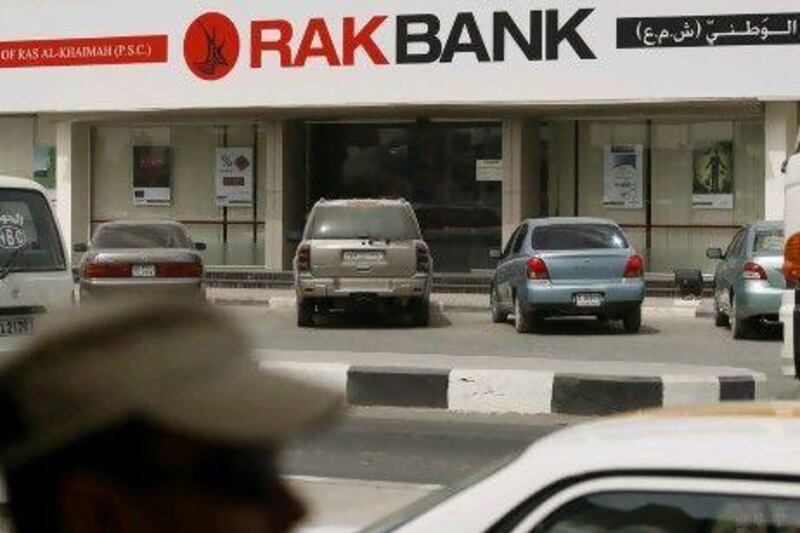RAKBank maxed out on its credit card and car loans businesses in the second quarter as stability in the job market led to new customers throughout the Emirates.
The lender, based in Ras Al Khaimah, reported net profits of Dh296 million (US$80.5m), an increase of 23.2 per cent on the same period last year, although analysts cautioned that the bank's growth in retail lending was likely to slow.
RAKBank's profitability "reflects the growth in the bank's customer base across a wide range of personal and small business segments", said Graham Honeybill, RAKBank's chief executive, in a statement to the Abu Dhabi Securities Exchange.
RAKBank, which is one of the UAE's biggest retail lenders, sustained its margins in the face of the introduction of new Central Bank regulations to counter excessive fees on personal lending, credit cards and car loans.
The bank's shares rose 1.08 per cent to Dh4.70 following the announcement.
Unsecured retail lending experienced rapid growth, which analysts said would be tricky to follow as the new regulations come into effect.
On May 1, the Central Bank implemented limits on personal loan charges and capped the amount individuals could borrow.
Compared with the same period last year, the bank's interest income from car loans soared 38.4 per cent to Dh14.6m, while income at its credit card division rose 10.2 per cent to Dh152.3m.
However, the new lending laws were forcing a change of strategy at RAKBank, which derives 91 per cent of its revenues from retail banking.
Interest income from commercial lending rose 36.9 per cent to Dh275m.
"Following the introduction of the new Central Bank of the UAE guidelines for the retail banking segment, the bank is diversifying its product range and expanding further into business customer segments," the bank said.
Despite the limits on personal borrowing, lending increased 1.9 per cent to Dh17.5 billion, while net interest income rose 23.8 per cent to Dh488m.
That additional revenue offset the effect of caps on bank charges, which caused income from fees and commissions to fall by 10.1 per cent to Dh121.2m.
Stabilisation in the UAE's employment market, following job losses during the global financial crisis, had ensured RAKBank's retail lending business remained healthy, said Mahin Dissanayake, a financial analyst at Fitch Ratings.
He said another part of RAKBank's growing profitability was its lack of exposure to over-indebted corporations, which meant it had set aside less money for bad debts.
"They've not had to provide for the large Dubai-based companies that were restructuring," Mr Dissanayake said.
However, the bank's dependence on retail lending was a potential vulnerability in the quarters ahead.
"We expect growth to be affected by the Central Bank rules, but those only came into effect recently," he said. "Going forward, the pace of growth is likely to be slow."
Separately, Noor Islamic Bank (NIB), the Sharia-compliant lender owned by Noor Investment Group and the Emirates Investment Authority, reported a net profit of Dh62.4m for thesecond quarter of this year, compared with a loss of Dh54.6m in the same period last year.
Revenues rose 140.1 per cent to Dh229.1m during the same period.
"NIB's improved results are underpinned by increased operating revenues and earnings stemming from the strategic consolidation drive adopted in 2010," the bank said.





